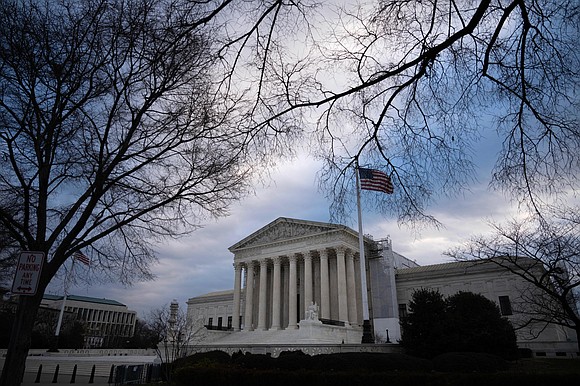Supreme Court appeals Oklahoma death row inmate after state attorney general admitted mistakes
CNN/Stylemagazine.com Newswire | 1/22/2024, 10:06 a.m.

Originally Published: 22 JAN 24 09:53 ET
Updated: 22 JAN 24 10:53 ET
By Devan Cole, CNN
(CNN) — The Supreme Court agreed on Monday to take up the extraordinary appeal of an Oklahoma death row inmate named Richard Glossip, a man who even the state attorney general said should not be executed.
Last May the justices halted the pending execution while legal challenges played out.
Glossip has endured 26 years behind bars, nine execution dates, three last meals and two independent investigations that raised serious doubts about his conviction.
Oklahoma Attorney General Gentner F. Drummond told the Supreme Court that the state had recently made the “difficult decision” to confess error in Glossip’s case and supports vacating the conviction of Glossip. The move was an about-face and came after review of new information that had come to light related to prosecutorial misconduct at Glossip’s trial.
The Oklahoma Court of Criminal Appeals refused however, to accept the confession of error and determined the execution should go forward.
“That decision cannot be the final word in this case,” Drummond told the justices. “The injustice of allowing a capital sentence to be caried out where the conviction was occasioned by the government’s own admitted failings would be nigh unfathomable,” Drummond told the court in court papers.
The case dates back to 1997 when Justin Sneed murdered Barry Van Treese, the owner of a motel in Oklahoma City. After his arrest, and in exchange for avoiding the death sentence, Sneed implicated Glossip, who was serving as the motel’s manager. Sneed admitted to killing Van Treese. But at trial, prosecutors portrayed the killing as a murder-for-hire plot orchestrated by Glossip. Sneed secured a deal to avoid the death penalty: Plead guilty and testify against Glossip, then a 35-year-old whose criminal record included a single traffic ticket, per his attorneys.
Glossip’s conviction, according to the state, hinged almost entirely on Sneed’s credibility. But the state recently learned that the prosecution failed to disclose evidence related to Sneed’s credibility and failed to correct testimony it knew to be false.
Specifically, the state failed to release records that disclosed that Sneed was treated for a serious psychiatric condition.
Van Treese family members believe the execution should go forward.
“The State deeply respects the victim’s family’s concerns about ensuring justice be done,” Drummond told the justices, “but Justice would not be served by moving forward with a capital sentence that the State can no longer defend because of prosecutorial misconduct and cumulative error.”
Lawyers for Glossip say they only obtained files this year that revealed that Sneed saw Oklahoma’s only psychiatrist who diagnosed him with bipolar disorder and prescribed lithium. At trial, Sneed testified that after he was arrested he had “asked for some Sudafed because I had a cold, but then shortly after that somehow they ended up giving me Lithium for some reason, I don’t know why, I never seen a psychiatrist or anything.”
There were no noted dissents on Monday, although Justice Neil Gorsuch is recused from the case, likely because he dealt with it in some form before he took his seat on the high court.
CORRECTION: This story has been updated to reflect the correct year of Barry Van Treese’s murder.
CNN’s Brynn Gingras, Linh Tran, Dakin Andone and Ariane de Vogue contributed to this report.
The-CNN-Wire



